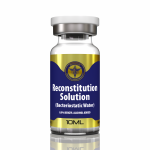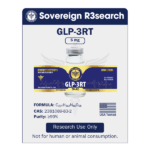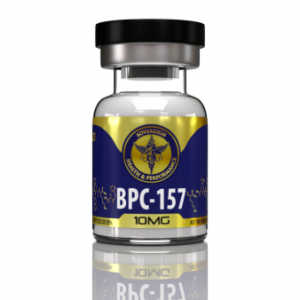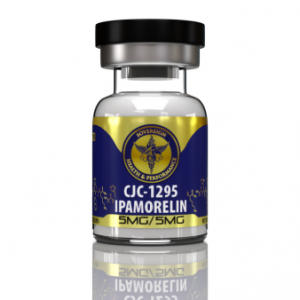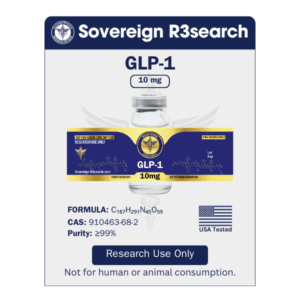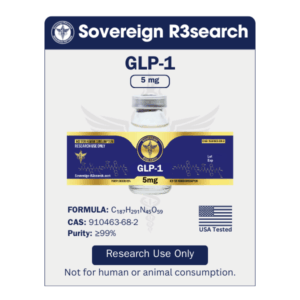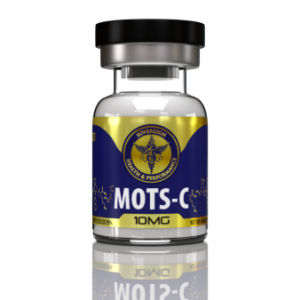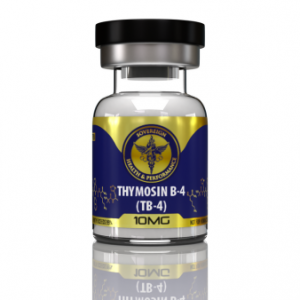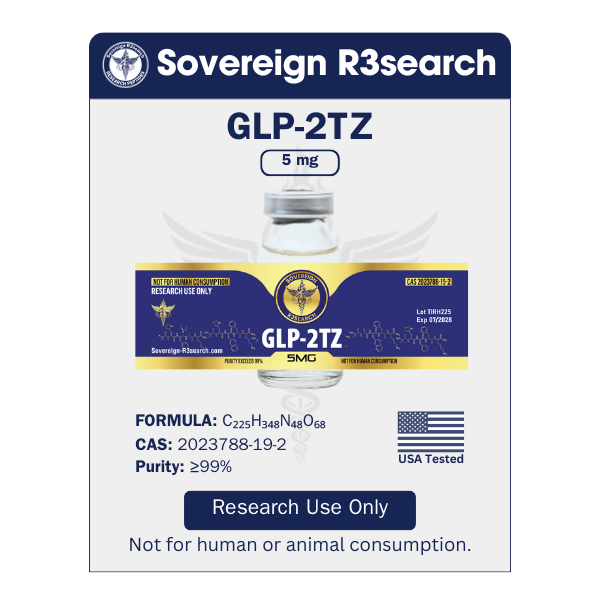
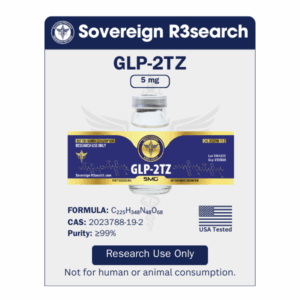
GLP-2TZ
$69.00 – $135.00Price range: $69.00 through $135.00
Research Only Purposes
- Description
- Additional information
Description
Introduction to GLP-2TZ (Research Use Only)
GLP-2TZ is an investigational peptide analog designed to act on glucagon-like peptide-2 (GLP-2) receptors. It incorporates sequence and structural modifications intended to enhance stability and extend plasma half-life compared with native GLP-2.
Endogenous GLP-2 is secreted by intestinal L-cells in response to nutrient ingestion and plays central roles in:
-
Maintaining gut barrier integrity
-
Supporting intestinal growth and mucosal repair
-
Enhancing nutrient absorption
GLP-2TZ is being explored as a research-grade analog to advance understanding of GLP-2 receptor pharmacology, intracellular signaling (cAMP, PI3K), and systemic metabolic effects.
Research Highlights
1. Intestinal Growth and Repair Models
Preclinical studies demonstrate that GLP-2 analogs stimulate intestinal epithelial proliferation and enhance mucosal regeneration following injury. GLP-2TZ is being evaluated in experimental models of short bowel syndrome and inflammatory bowel disease for its potential to promote epithelial renewal and villus growth.
Reference (example): Drucker DJ, et al. Nature Medicine. 2000.
2. Nutrient Absorption and Barrier Function
Activation of GLP-2 receptors has been linked to improvements in nutrient absorption (lipids, carbohydrates) and tightening of epithelial junctions. Research with GLP-2TZ analogs indicates enhanced tight-junction integrity and reduced intestinal permeability under stress.
Reference (example): Jeppesen PB, et al. Gastroenterology. 2001.
3. Metabolic Regulation Beyond the Gut
Emerging data suggest that GLP-2 signaling extends beyond the intestine, influencing hepatic lipid metabolism, systemic inflammation, and gut-liver immune communication. GLP-2TZ is being explored for its ability to clarify these cross-tissue signaling pathways.
Reference (example): Yusta B, et al. Endocrinology. 2002.
4. Mechanisms of Action
Mechanistically, GLP-2 and its analogs (including GLP-2TZ) have been shown to:
-
Activate GLP-2 receptor → cAMP and PI3K signaling cascades
-
Promote enterocyte survival and suppress apoptosis
-
Increase intestinal blood flow through vasodilatory mediators
-
Stimulate villus height and mucosal expansion in preclinical models
Reference (example): Drucker DJ. Physiological Reviews. 2001.
5. Safety and Tolerability (Research Context)
Published clinical data on related GLP-2 analogs such as teduglutide show that most adverse events are gastrointestinal, including abdominal pain, distension, or injection-site reactions. GLP-2TZ itself has not been tested in humans; preclinical studies suggest a dose-dependent tolerability profile similar to existing GLP-2 analogs.
Reference (example): Jeppesen PB, et al. Lancet. 2012.
Molecular Structure
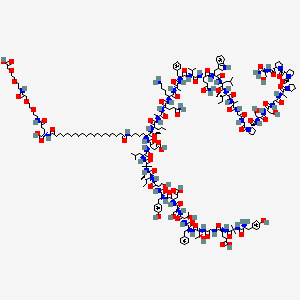
Amino Acid Sequence: YE-Aib-GTFTSDYSI-Aib-LDKIAQ (C20 fatty acid) AFVQWLIAGGPSSGAPPPS
Note: Aib is a non-coded (non-proteinogenic) amino acid – H₂H-C(CH₃)₂-COOH
Molecular Formula: C₂₂₅H₃₄₈N₄₈O₆₈
Molecular Weight: 4813.527 g/mol
PubChem CID: 156588324
CAS Number: 2023788-19-2
Synonyms: GLP-2TZ; P1206; LY3298176; Dual GIP and GLP-1 receptor agonist (GIP/GLP-1RA)
Source: PubChem
Note: The molecular details are provided for structural reference only. As with all research-grade peptides, sequence confirmation and analytical verification should be performed per lot documentation.
Supporting References
-
Drucker DJ, Erlich P, Asa SL, Brubaker PL. Glucagon-like peptide-2 stimulates intestinal epithelial growth. Nature Medicine. 2000;6(5):583-588. doi:10.1038/75068
-
Jeppesen PB, Hartmann B, Thulesen J, Graff J, Lohmann J, Hansen BS, Holst JJ, Mortensen PB. Glucagon-like peptide 2 improves nutrient absorption and nutritional status in short-bowel syndrome patients. Gastroenterology. 2001;120(4):806-815. doi:10.1053/gast.2001.22555
-
Yusta B, Holland D, Waschek JA, Drucker DJ. Intestinotrophic glucagon-like peptide 2 receptor signaling pathways in murine models. Endocrinology. 2002;143(10):3717-3727. doi:10.1210/en.2002-220292
-
Drucker DJ. Glucagon-like peptides: physiology, pharmacology, and therapeutic implications. Physiological Reviews. 2001;81(3):1031-1064. doi:10.1152/physrev.2001.81.3.1031
-
Jeppesen PB, Pertkiewicz M, Messing B, Iyer K, Seidner DL, O’Keefe SJ, Forbes A, Heinze H, Joelsson B. Teduglutide (ALX-0600), a dipeptidyl peptidase-IV resistant glucagon-like peptide-2 analogue, improves intestinal function in short-bowel syndrome: a randomized, placebo-controlled trial. Lancet. 2012;380(9843):989-997. doi:10.1016/S0140-6736(12)61075-1
Additional information
| CAS | 2023788-19-2 |
|---|---|
| MG | 10, 5 |
| Brand | Sovereign Health and Performance |


